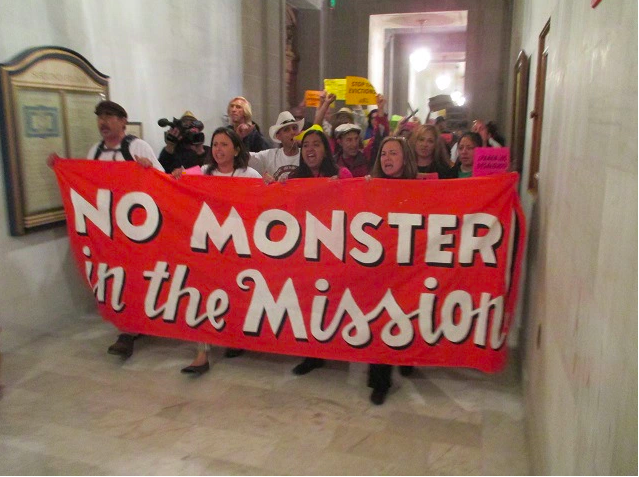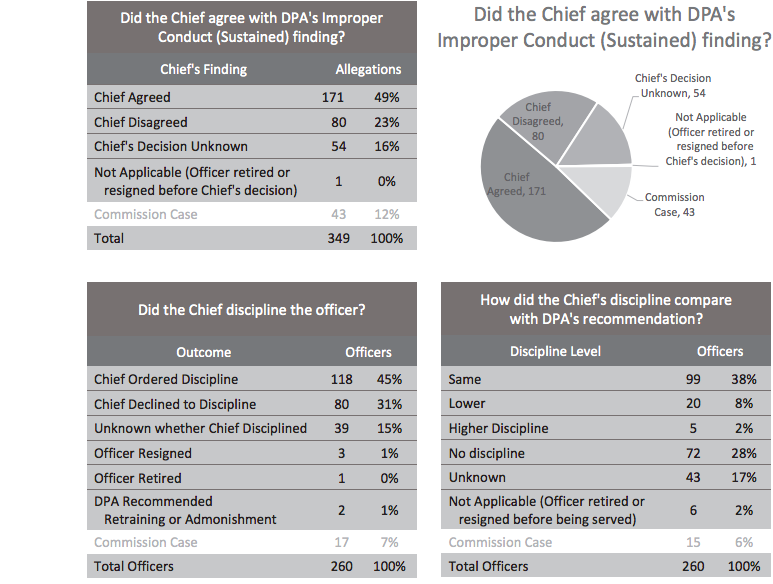On March 4, 2015 – more than five years ago – the developers who wanted to build a massive market-rate housing project at 16th and Mission presented their proposal at a community meeting.
They got nowhere.
More than 300 people showed up to say: We don’t want the Monster in the Mission. We want 100 percent affordable housing on that site.

And Bert Polacci, a lobbyist for Maximus Partners, said what the company would repeat over and over for the next four years:
There can be no 100 percent affordable housing on the site. It’s a private venture, privately owned, and Maximus is going to make a profit on the deal. No, the land can’t be sold to the city for affordable housing; the site, Polacci told me, “is not for sale.”
Well guess what? Maximus just sold the property, and it will be 100 percent affordable housing.
That’s the result of years of community organizing by the Plaza 16 Coalition, Causa Justa:Just Cause, and others. Maximus had money, a team of lobbyists, and connections at City Hall; the folks who actually live in the Mission wouldn’t back down.
They wanted housing on the site – just not market-rate housing that would drive up prices everyone else in the area and lead to massive displacement.
Help us save local journalism!
Every tax-deductible donation helps us grow to cover the issues that mean the most to our community. Become a 48 Hills Hero and support the only daily progressive news source in the Bay Area.
And they won.
Resistance is not futile. Even the biggest developers can be stopped in their tracks if the community organizes together.
The Board of Supes is pretty much shut down this week, but the Police Commission hearing Wednesday/9 has a fascinating item: The annual report of the Department of Police Accountability.
Here’s what it says, in essence:
In the 349 cases where the civilian oversight agency found police misconduct, the chief dismissed half of them. Fewer than half of the officers found to have broken the rules or the law ever faced discipline.

There’s a reason that the city has an independent agency that investigates police misconduct. Cops can’t investigate cops; it never works.
And the head of the DPA, Paul Henderson, is by no means a radical anti-cop leftist. He’s a pretty moderate, cautious person. So the sustained misconduct cases that he sends to the chief represent the most serious, well-substantiated cases the DPA investigators completed.
And half of those were summarily dismissed.
The problem here, of course, is that a chief who refuses to discipline officers found to have engaged in misconduct sets a very bad standard for the force. The message is: Don’t worry about minor rule violations, or ever some serious ones. Nothing will ever come of it.
And when nothing ever comes of minor violations, they escalate into major violations, and we get a department out of control.
We have no way of knowing which charges the chief dismissed, or how serious they were, because of much of the police discipline process is still cloaked in secrecy.
But we know the system isn’t working. And I hope the commission members have some questions about that.
The Ethics Commission will discuss Friday/11 some potential changes to the laws around public officials receiving gifts. It’s the result of the ongoing FBI investigations into public corruption:
In January of this year, the FBI announced a federal corruption case against Mohammed Nuru, then the Director of the Department of Public Works, and Nick Bovis, a local businessman. On March 10th, the City Attorney sent a report to the Mayor detailing allegations that the Director of the Department of Building Inspection, Tom Hui, also violated state and local ethics laws. Hui subsequently resigned. On June 8th, the FBI charged three additional individuals with crimes related to the original complaint against Nuru and Bovis: Sandra Zuniga, director of the Mayor’s Office of Neighborhood Services, and Balmore Hernandez and Florence Kong, both City contractors. On June 24th Walter Wong, a permit expediter, was also charged with related crimes. Some of the conduct for which these individuals have been investigated and charged includes attempting to bribe a City commissioner, giving and receiving gifts in exchange for favorable treatment by the City, and laundering gifts to disguise their source and nature. If true, these allegations demonstrate an alarming level of unethical conduct in and around City government and its decision making processes.
The commission staff is suggesting updates that would, among other things, make it a crime to give an illegal gift, as well as to receive one. The proposals include:
• Limiting or removing certain exceptions that allow for otherwise prohibited gifts, including the exceptions for gifts from personal friends and gifts of food and drink;
• Strengthening rules regarding gifts of travel;
• Strengthening rules regarding gifts from restricted sources;
• Making the giving of prohibited gifts unlawful, as opposed to only the receipt of such gifts;
• Increasing liability for individuals who knowingly act as an intermediary for prohibited gifts;
• Strengthening rules regarding gifts made to City departments and creating penalties for failure to adhere to such rules;
• Simplifying the overall complexity of current gift rules;
• Incorporating common provisions found in departmental Statements of Incompatible Activities directly into the City’s ethics and conflict of interest statute; and
• Strengthening post-employment restrictions.
There’s also the ongoing question of the budget for Ethics, which is among the most important agencies in the city and survives on less than $5 million a year – such a small percentage of the city’s $11 billion budget that my calculator can’t handle it. I think we are talking about 4.5 ten thousandths of a percentage point.
That meeting starts at 9:30am; you can login here.



